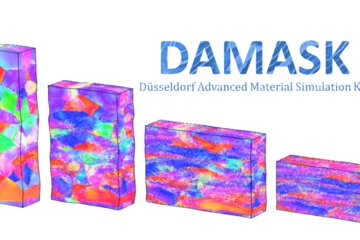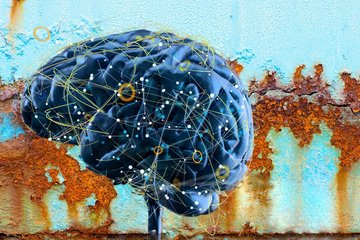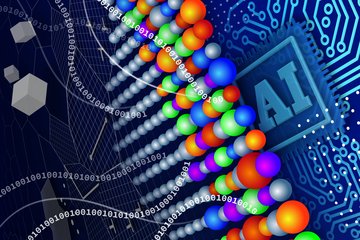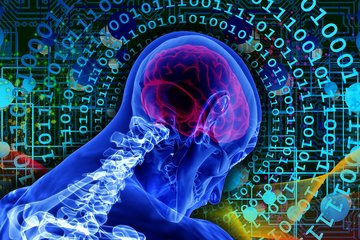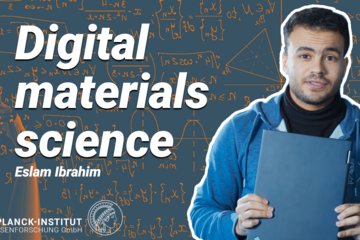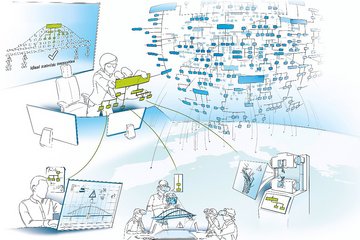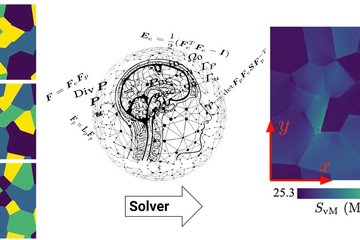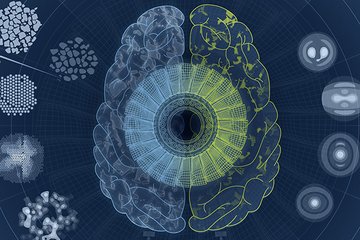Alle Typen
1.
Zeitschriftenartikel
A novel microwall sliding test uncovering the origin of grain refined tribolayers. Acta Materialia 246, 118670 (2023)
2.
Zeitschriftenartikel
Influence of crystal orientation on twinning in austenitic stainless-steel during single micro-asperity tribology and nanoindentation. WEAR 504-505, 204403 (2022)
3.
Zeitschriftenartikel
Deformation and phase transformation in polycrystalline cementite (Fe3C) during single- and multi-pass sliding wear. Acta Materialia 227, 117694 (2022)
4.
Zeitschriftenartikel
Massive interstitial solid solution alloys achieve near-theoretical strength. Nature Communications 13, 1102 (2022)
5.
Zeitschriftenartikel
Scratch hardness at a small scale: Experimental methods and correlation to nanoindentation hardness. Tribology International 163, 107168 (2021)
6.
Zeitschriftenartikel
In situ nanoindentation during electrochemical hydrogen charging: a comparison between front-side and a novel back-side charging approach. Journal of Materials Science 56 (14), S. 8732 - 8744 (2021)
7.
Zeitschriftenartikel
On the commensuration of plastic plowing at the microscale. Tribology International 151, 106477 (2020)
8.
Zeitschriftenartikel
Investigation of single asperity wear at the microscale in an austenitic steel. WEAR 452–453, 203289 (2020)
9.
Zeitschriftenartikel
Experimental conditions affecting the measured fracture toughness at the microscale: Notch geometry and crack extension measurement. Materials and Design 191, 108582 (2020)
10.
Zeitschriftenartikel
Insight into indentation-induced plastic flow in austenitic stainless steel. Journal of Materials Science 55, S. 9095 - 9108 (2020)
11.
Zeitschriftenartikel
A Modified Electrochemical Nanoindentation Setup for Probing Hydrogen-Material Interaction Demonstrated on a Nickel-Based Alloy. JOM-Journal of the Minerals Metals & Materials Society 72 (5), S. 2020 - 2029 (2020)
12.
Zeitschriftenartikel
Unraveling indentation-induced slip steps in austenitic stainless steel. Materials and Design 183, 108169 (2019)
13.
Zeitschriftenartikel
Towards quantifying the shear delamination of thin films. Materialia 8, 100421 (2019)
14.
Zeitschriftenartikel
In-situ study on fracture behaviour of white etching layers formed on rails. Acta Materialia 180, S. 60 - 72 (2019)
15.
Zeitschriftenartikel
Micro fracture investigations of white etching layers. Materials and Design 180, 107892 (2019)
16.
Zeitschriftenartikel
Plastic deformation of tungsten due to deuterium plasma exposure: insights from micro-compression tests. Scripta Materialia 162, S. 132 - 135 (2019)
17.
Zeitschriftenartikel
A framework for material calibration and deformation predictions applied to additive manufacturing of metals. International Journal of Fracture 218, S. 85 - 95 (2019)
18.
Zeitschriftenartikel
The third Sandia fracture challenge: predictions of ductile fracture in additively manufactured metal. International Journal of Fracture 218 (1-2), S. 5 - 61 (2019)
19.
Zeitschriftenartikel
Tribolayer formation during macro- and microscale cyclic contact. Tribology International 129, S. 436 - 441 (2019)
20.
Zeitschriftenartikel
Hydrogen embrittlement of tungsten induced by deuterium plasma: Insights from nanoindentation tests. Journal of Materials Research 33 (20), S. 3530 - 3536 (2018)

